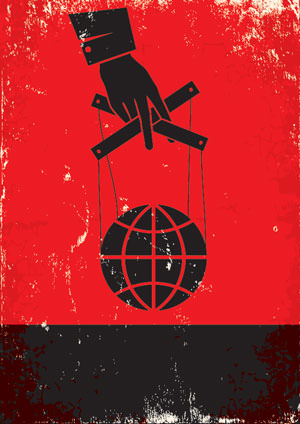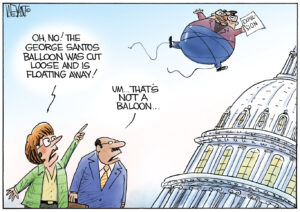U.S. Pushing New Treaties at Expense of National Sovereignty
Being negotiated right now are American-sponsored corporate efforts to alter trans-Atlantic and trans-Pacific international trade relations through new agreements that undermine or effectively nullify many countries' existing national legislation on health, environment, pricing, food safety and other issues.
Editor’s note: This column has been revised as of 11/20/13 to reflect events in the news.
The foreign reaction to the National Security Agency revelations that I have heard most has been not only how arrogant Washington has been in spying on its allies but, worse than that, how arrogant everyone in Washington and most of the American press and television has been about foreigners.
The all but unanimous American response to critics has been “Everybody does it,” or “If you could, you would be doing it, too,” or, best of all, “Look, buddy, this is the U.S. and if you don’t like it….”
The old attitude of “We’re No. 1, and make something of it,” is back. One might think the serial catastrophes of recent American foreign policy would shut a few American mouths, but this hasn’t happened, and there is more arrogance on the way if you read the news.
Take foreign trade. Being negotiated right now are American-sponsored corporate efforts to alter trans-Atlantic and trans-Pacific international trade relations through new agreements that undermine or effectively nullify many countries’ existing national legislation on health, environment, pricing, food safety and other issues, accomplishing this by pressuring them to sign new international agreements that have treaty status, which in most countries supersedes domestic law.
Certainly treaties do so under the United States Constitution, which means that not only foreigners but Americans themselves will suffer if this smash-and-grab legislation passes in the U.S. Congress. (Fortunately, there is mounting opposition even in Congress, the land where corporate money now rules — but perhaps not always.)
The proposed agreements deal with patents and other intellectual property (in order to extend the life of corporate patents and sequester scientific data so it cannot be used competitively). The U.S. negotiators have even proposed that surgical procedures be subjected to patents, even though this may be contrary to existing American law and that of other countries.
From the consumer viewpoint, the most pernicious provision on the table would permit business corporations to sue governments for domestic regulations or laws that limit their actual or potential profits — and worse yet, to do so in special tribunals outside the normal legal systems of the affected countries, free of the rules of due process and public disclosure that prevail in the usual judicial systems of nation.
This and other outrageous provisions in these proposals effectively exempt influential business corporations from the sovereignty of governments in many economic, trade, commercial, and even scientific and health matters.
For this reason, the negotiations on both the Transatlantic Trade and Investment Partnership and Trans-Pacific Partnership treaties have been conducted in great secrecy, on the American side with access on crucial matters withheld even from legislators and congressional staff — which is to say from the branch of the U.S. government that is constitutionally sovereign in trade matters.
To further conceal the details, purport and consequences of many of these elements in the proposed agreements, the American negotiators are attempting to obtain “fast track” Washington authority for the treaties, meaning that negotiations do not take place in public and the final agreement will be submitted to the president for signature with Congress compelled to vote “up or down” without amendment. (These details have been disclosed by WikiLeaks documents published in the press — by The Guardian of Britain in this case, to which indispensable newspaper the author is grateful.)
Arrogance these days seems to have become the national style. The sovereignty of other countries is regularly challenged by the United States in political, intelligence (the NSA spy scandal currently) and above all, military matters. This week a seemingly decisive conflict between the U.S. and the government of President Hamid Karzai in Afghanistan over future security relations has been resolved on American terms. The Americans have demanded that if any United States forces remain in Afghanistan after the scheduled withdrawal of all NATO forces by the end of 2014, they must enjoy exemption by the Afghan government in matters of national law. Until now, President Karzai had refused to permit the American demand for autonomy in conducting military operations, notably the privilege of forcibly entering Afghan homes in the course of American operations.
Visit William Pfaff’s website for more on his latest book, “The Irony of Manifest Destiny: The Tragedy of America’s Foreign Policy” (Walker & Co., $25), at www.williampfaff.com.
© 2013 Tribune Media Services, Inc.
Your support matters…Independent journalism is under threat and overshadowed by heavily funded mainstream media.
You can help level the playing field. Become a member.
Your tax-deductible contribution keeps us digging beneath the headlines to give you thought-provoking, investigative reporting and analysis that unearths what's really happening- without compromise.
Give today to support our courageous, independent journalists.






You need to be a supporter to comment.
There are currently no responses to this article.
Be the first to respond.